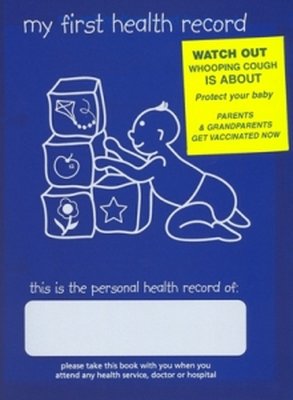
Having a newborn baby is a very exciting time for families. Following the birth of your baby there are many new things parents need to adjust to, which include different sleeping patterns, regular feeding, baby health checks, immunisations, teething, crawling, walking, the list goes on.
Being new parents can at times seem overwhelming. To support parents through their child’s journey are our Child and Family Health Nurses, who can assist you in many ways following the birth of your child to their fifth birthday.
All our nurses are Registered Nurses with additional qualifications in Child and Family Health Nursing.
Child and Family Health Nursing Services
Babies, infants and toddlers
Newborn home visits and clinic visits
Child and Family Health Nursing Service offers a home visit following the birth of your baby. Nurses will attend to you baby's 1-4 week check (see the My Personal Health Record blue book), provide health related information and suggest resources and referral if required.
At the 1-4 week check, your nurse will assess:
- Weight
- Length
- Head circumference
- Fontanelles (soft spots on your baby's head)
- Eyes
- Umbilicus
- Femoral pulses
- Hip test for dislocation
- Testes (fully descended)
- Genitalia
- Anal region
- Skin
- Reflexes
The nurse will also discuss with you any concerns you may have about your baby's health, their sleeping, feeding and how you as parents are going.
Following your visit at home we welcome you to make a follow up appointment at our clinics.
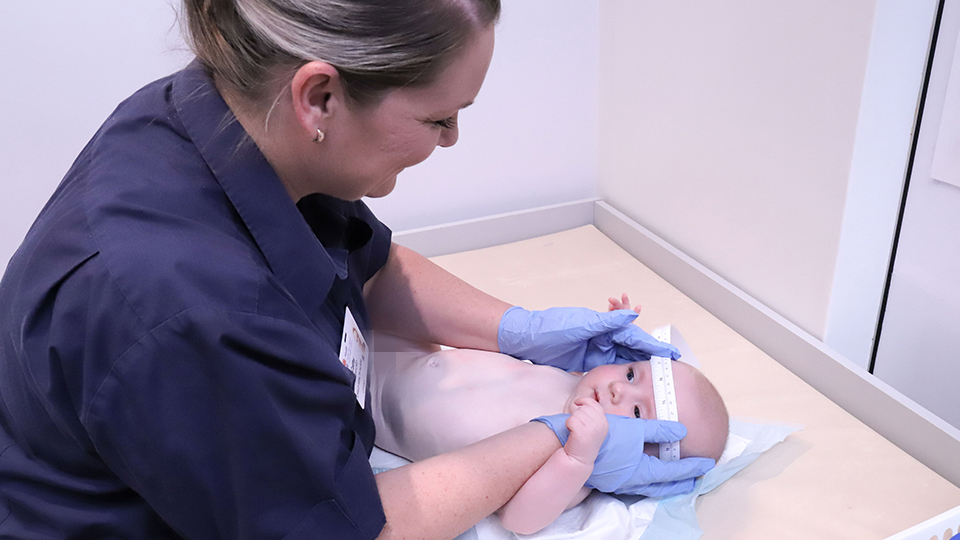
Immunisation clinics
Immunisation is a simple, safe and effective way of protecting your child against harmful diseases before they come into contact with them. By vaccinating your child you're protecting your child as well as the broader community. The more people who are vaccinated (adults included), provides a greater ability to control serious vaccine preventable diseases.
Child and Family Health Nurses provide free immunisation clinics to children from 6 weeks to less than 5 years and are held in several locations within the Newcastle/Lake Macquarie areas. You will need to call and book prior to attending a clinic.
Additional information about immunising your child:
- NSW Immunisation schedule
- How are vaccines shown to be safe?
- What is in vaccines?
- Following vaccination - what to expect and what to do
- Vaccination and autism - how we know vaccination does not cause autism
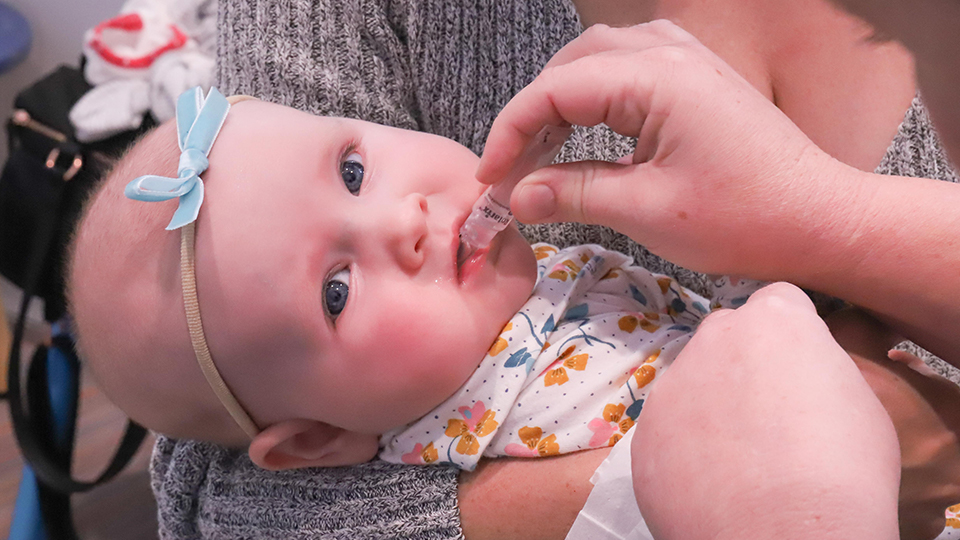
Growth and development
From birth to five years, each child should reach milestones in how they play, learn, speak, act and move.
The Personal Health Record (Blue Book) is given to all parents in NSW after the birth of a child. Child and Family Health Nurses are able to provide health checks from birth to five years of age, following the development stages outline in your child's Personal Health Record.
When your child reaches pre-school they will be offered a StEPS vision screening for 4-5 year olds.
Further information for you about children’s development and screening in NSW:
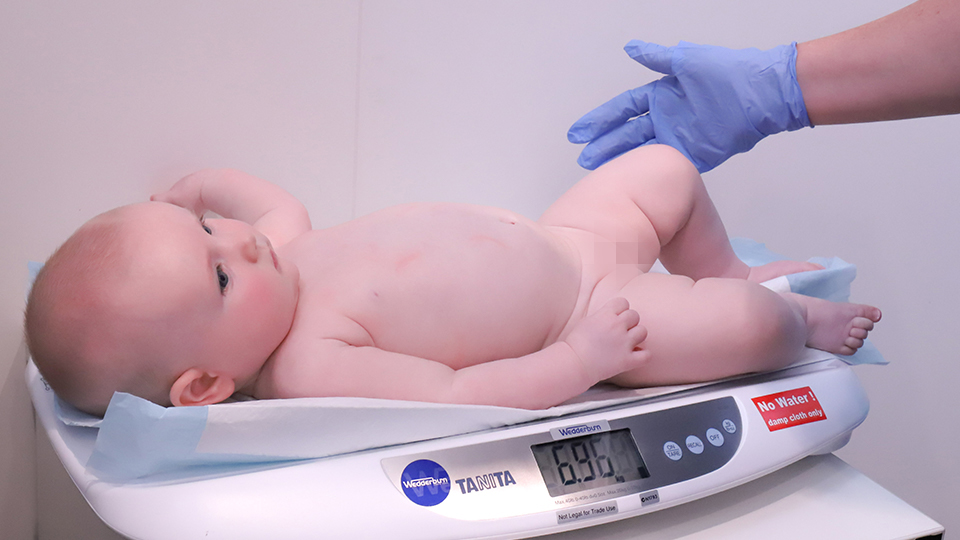
Hearing clinics
Audiometry clinics (hearing checks) are conducted by an Audiometry Nurse for children aged from 3.5 years to 18 years (still at school), if there are hearing concerns.
To access a clinic, an audiometry referral is accepted from medical professionals, speech therapists (within the LGA), child and family health nurses, schools/preschools, other health professionals. A GP referral is required for all out of area clients.
The service provides a full audiometry assessment, which includes:
- History
- Otoscopy
- Tympanometry
- Pure tone audiometry in a sound booth, which includes air and bone conduction and if required air and bone masking.
To learn more about the importance of keeping your child's nose and lungs clear, take a look at the Blow, Breathe, Cough, Wash and Chew for Healthy Ears information sheet.
Information on hearing testing and hearing loss
- Can your child hear?
- Ear problems in children
- Glue ear and grommets
- Hearing loss in one ear: babies and pre-school children
- Otitis media (middle ear infection)
- Unilateral (single sided) hearing loss: The school child
Hearing clinic locations
- Toronto
- Waratah
- Raymond Terrace
- Tomaree
My Personal Health Record: Blue Book
All parents receive a copy of the 'My Personal Health Record (Blue Book)' following the birth of their child.
The Blue Book (available in 18 languages) is used for record keeping and as a guide for your child's health, development, growth, illnesses, injuries and immunisations. The health checks detailed in your child's Blue Book are very important, they help you as a parent and health professionals track the development of your child and pick up any concerns early.
If your child's Blue Book has been lost or damaged, you can purchase another copy for $10 from the Better Health Centre.
Better Health Centre
Ph: (02) 9887 5450
Download the My Personal Health Record (Blue Book)
- My Personal Health Record - English
- My Personal Health Record - Arabic
- My Personal Health Record - Burmese
- My Personal Health Record - Chinese Simplified
- My Personal Health Record - Chinese Traditional
- My Personal Health Record - Dinka
- My Personal Health Record - Dari
- My Personal Health Record - Farsi
- My Personal Health Record - Hindi
- My Personal Health Record - Indonesian
- My Personal Health Record - Khmer
- My Personal Health Record - Korean
- My Personal Health Record - Lao
- My Personal Health Record - Nepali
- My Personal Health Record - Somali
- My Personal Health Record - Tamil
- My Personal Health Record - Thai
- My Personal Health Record - Turkish
- My Personal Health Record - Vietnamese
Look Who’s Talking: The first six weeks of life
How often might you come in contact with your Child and Family Health Nurse over the first six weeks of your child's life?
Join Harry and his mum Jenny as they take you through their regular visits to and from the Child and Family Health Nurses, to ensure Harry and his mum are receiving the care and checks they need.
Paediatric Continence Service
The Paediatric Continence Service helps children who have long standing issues with soiling (encopresis) or wetting (enuresis). These issues are not uncommon and can occur alone or in combination.
Soiling and wetting can be extremely frustrating and embarrassing for children and their family. It can lead to struggles at home, in school, in friendships and with emotions, behaviour and mental health. Children experiencing issues with continence can be more active, social, happy and independent when they have a management plan that works for them.
About Encopresis / Enuresis
Encopresis or soiling problems usually build up over a period of time and may be associated with constipation or apparent diarrhea. Most children have no control over the soiling.
Constipation is when your child’s stool is hard, painful or difficult to pass.
- A hard, painful stool can make a child scared and reluctant to use the toilet.
- Constipation can occur around the time of toilet training.
Soiling is when smears of their stool can appear on your child’s underwear.
- It can mean that the bowel could be overloaded and overflow is occuring.
- Your child may not feel the urge to go to the toilet because to them the rectum always feels stretched.
- Soiling can happen without your child knowing.
Management consists of:
- dietary advice
- a good water intake
- a stool diary
- laxative regime
- a toileting program
Further information is available in the Resources section below.
Enuresis (wetting)
Bedwetting is known in medical terms as nocturnal enuresis (roughly meaning ‘urinate in the night’), and sometimes is just referred to as enuresis.
How common is bedwetting?
Bedwetting is common in school age children. It affects:
- 1 in 5 children at 5 years.
- 1 in 10 children at 10 years.
- 1 in 30 to 100 teenagers at 15 to 17 years.
Are there different types of bedwetting?
- Mono-symptomatic enuresis – is when bedwetting at nightime is the only symptom
- Non-mono-symptomatic enuresis – children can have nightime and daytime bladder symptoms
For example:
- needing to wee as soon as they feel the urge (urgency)
- wetting while they’re awake
- needing to wee more often than usual
The Paediatric Urologist team will conduct a thorough assessment to distinguish between these two conditions and discuss appropriate treatment.
You may be referred initially to the Paediatric Urology team at John Hunter Children’s Hospital for an initial assessment and then to the Paediatric Continence Service Nurse.
Accessing the Paediatric Continence Service
Your child's GP is able to make the referral to the service. Your child's GP can find out the appropriate referral pathway by visiting our Primary Healthcare Practitioners Referrals page.
Encopresis / Enuresis Information and Resources
Enuresis (wetting)
Encopresis (soiling)
- How your bowel (poo) works
- Constipation and bladder and bowel control
- Toileting positions
- Toilet Tactics - Healthy Habits
- Constipation with overflow
Resources
Enuresis (wetting)
Encopresis (soiling)
Healthy Beginnings
Resources
- Bottle refusal
- Breastfeeding support people
- Feeding your baby
- Formula feeding support people
- Introduction of solids
- Iron
- Looking after yourself (emotional wellbeing)
- Looking after yourself (me time)
- Looking after yourself (getting active after birth)
- Universal Health Home Visiting - what to expect
- Your milk supply
Parenting support
Parenting information and support
Nurses in partnership with parents offer information or advice on many topics including feeding and nutrition, normal infant behaviour, sleep and settling, toddler behaviour, child safety, immunisation, play and development.
If you and the Child and Family Health Nurse (CFHN) identify additional support is appropriate, other services are available. You can discuss the options with your Child and Family Health Nurse.
For new parents, it is normal to feel overwhelmed at tired, the good news is there is information available online to assist you in the parenting journey.
Some helpful apps include:
- The LOVE Talk SING Read PLAY APP. This app contains information to support your child's learning and development from 0 to 5 years.
- The Deadly Tots App. This app contains information for every Aboriginal family with a child/children aged 0 to 5 years, to help their bub learn and grow.
Helpful websites include:
- Raising Children. The Raising Children website is a comprehensive, reliable, up-to-date and independent parenting website, which is funded by the Australian government.
- The three Children's Hospitals information sheets. These health fact sheets provide information on common childhood illnesses, along with complex illnesses and procedures. The information provided has been developed by paediatric medical professionals.
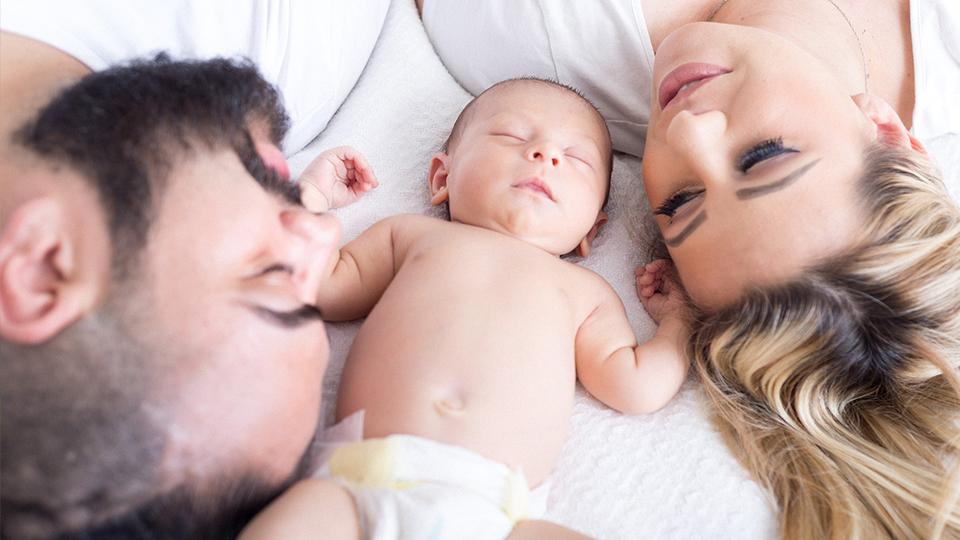
Parenting groups
Following the birth of your baby you are welcome to join one of our support groups for parents.
Waratah, Charlestown and Wallsend Child and Family Health Nursing Services offer a booked four week program for first time mothers from 0-12 weeks.
Morisset/Toronto and Port Stephens offer parent groups 0-6 months.
Parent groups are a positive way to connect with other families, gain knowledge and support, chat and exchange ideas.
A Child and Family Health Nurse facilitates the groups and discussion, which includes information on breastfeeding support and advice, sleep and settling information, immunisation information and adjusting to parenting.
Many parents continue to support one another and catch up once the group has concluded.
Information on these groups are provided at your first Child and Family Health Nurse visit. You can also call (02)49 236920 for further information.
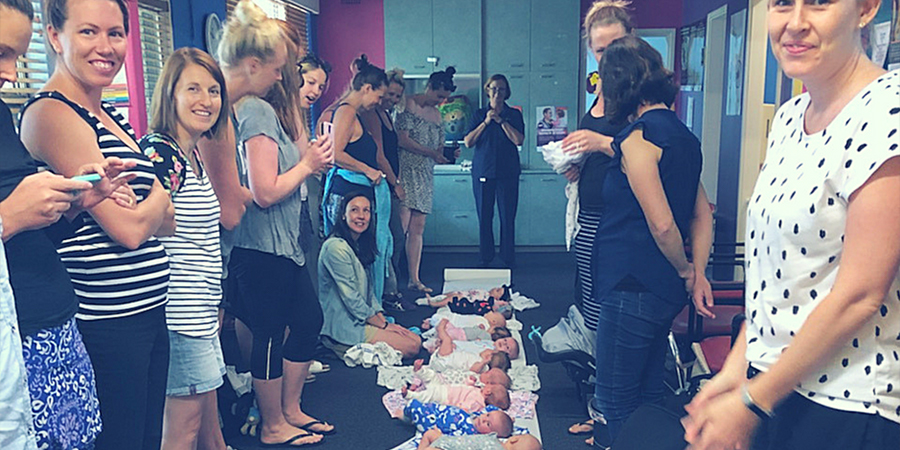
Breastfeeding support
Breastfeeding is a process of learning for both you and your baby. Our Child and Family Health Nurses, along with our Lactation Consultants, are here to help you with any questions or concerns you may have and can provide any extra support you may need.
Breastfeeding provides all your baby's essential needs for growth, development and protection from illness and disease. It will also satisfy your baby's hunger and thirst, along with bonding for you and your baby.
Learn more about ways we can support your breastfeeding journey: click here.
Sleep and settling
Sometimes we are so preoccupied with getting through the pregnancy and birth that we don’t give a thought to things such as sleeping and settling your baby once they're on the outside. Our Child and Family Health Nurses offer information and practical assistance with infant sleep cycles, settling techniques and feeding patterns.
Sleeping and settling isn't a one size fits all for babies. Each baby is different, however parents can learn how to respond effectively to babies when they are unsettled or recognise the signs their child is tired and needs assistance settling.
For some parents their babies don't respond to settling and sleeping techniques and may need a little extra support. Your Child and Family Health Nurse may refer you for assistance to First Steps Parenting Centre, Tresillian family support service or Karitane family support service.
To learn more yourself about sleeping and settling, take a look at these resources from Tresillian:
- Settling: 0 - 3 months old.
- Settling: 3 - 6 months old.
- Settling: 6 - 12 months old.
- Settling: 1 - 3 years old.
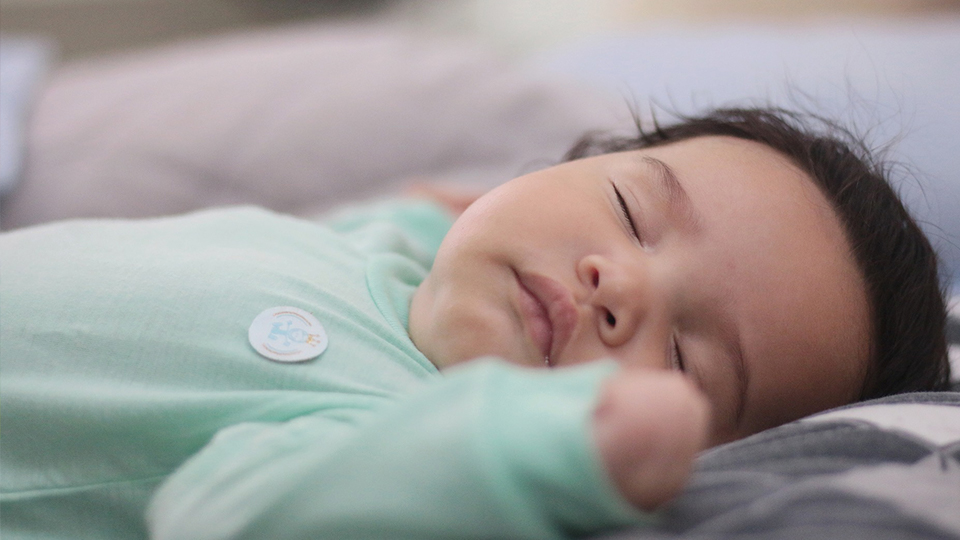
Contact
For all appointments and phone support call 49236920 between 8.30am and 4.00pm, Monday to Friday.
Child and Family Health Nursing Services provided by Hunter New England Local Health District are FREE
Locations across Newcastle, Lake Macquarie and Port Stephens
Belmont
Belmont Hospital Site
16 Croudace Bay Road, Belmont.
Charlestown
Charlestown Square
30 Pearson Street, Charlestown
Level 2 (next to the Secret Garden)
Edgeworth
Edgeworth
5 Minmi Road, Edgeworth
(next to the library)
Medowie
Medowie Community Centre
44 Ferodale Road, Medowie
Morisset
Morisset
143 Dora Street, Morisset
Newcastle
Newcastle
621 Hunter Street, Newcastle
Raymond Terrace
Raymond Terrace Community Health Centre
4 Jacaranda Avenue, Raymond Terrace
Tomaree
Tomaree Health One
Trevally Street, Nelson Bay
Toronto
Westlakes Community Centre
6 James Street, Toronto
Wallsend
Harker Building
10 Longworth Avenue, Wallsend
Waratah
Waratah
149 Turton Road, Waratah
Windale
Windale Community Health Centre
19 South Street, Windale

